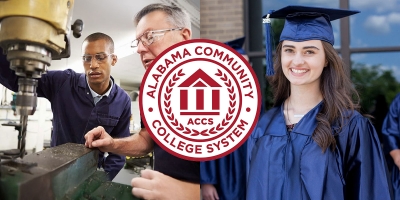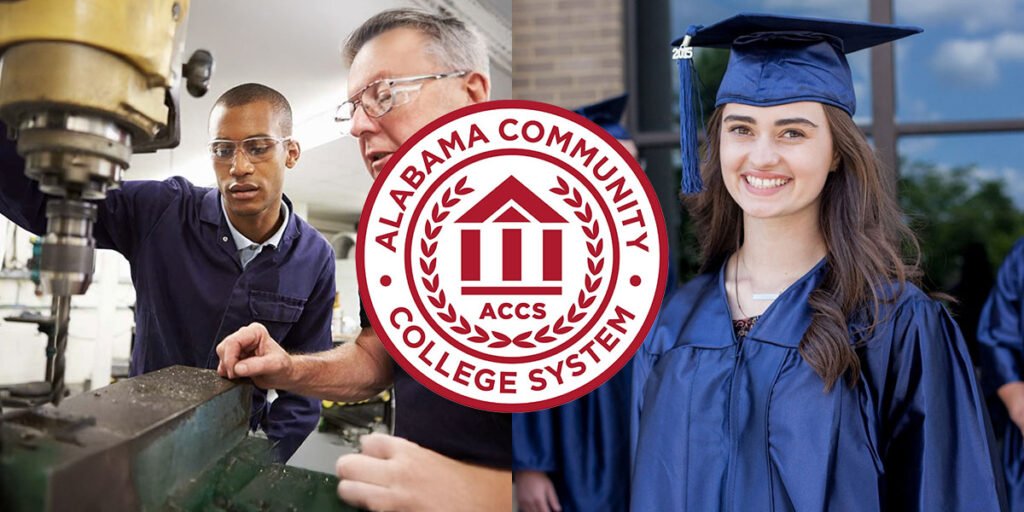
From high school graduates to adults seeking a career switch, many individuals in Alabama are turning to their local community colleges for their next educational step. The Alabama Community College System (ACCS) provides a diverse range of training and education options tailored to meet people where they are in their journey.
With 24 colleges and more than 130 campuses statewide, ACCS offers high-quality, affordable programs beneficial for various student backgrounds. Whether you’re entering the job market, looking to gain new skills, or finishing a degree, there’s a suitable path available for you.
A key decision students often face is whether to enroll in credit or non-credit courses. Both paths can lead to valuable opportunities, but they differ in structure depending on your objectives, availability, and the kinds of jobs you’re after.
Decide What’s Right for You
Before making your choice, it’s helpful to grasp how credit and non-credit courses are structured and what each aims to accomplish.
Dr. Natalie Thornton, who is the executive director of career and technical education, clarifies this difference. “The primary distinction is the time commitment involved,” she says. “Non-credit training is usually shorter and more foundational, making it a great choice for quick skill development.”
Meanwhile, credit courses adhere to a semester schedule and require a set number of instructional hours, even if they are condensed.
In essence, credit courses are part of a formal academic program that leads to a certificate or degree. Non-credit courses, on the other hand, provide swift and flexible skill training aimed at specific careers, often offering industry certifications without the lengthy classroom commitments.
Non-Credit: Fast, Focused, Job-Ready
Non-credit programs fast-track learning designed for those wanting to get to work quickly.
While these courses don’t contribute towards a university degree, they offer practical skills in high-demand sectors like manufacturing, healthcare, hospitality, construction, fiber optics, and commercial operations. Many of them culminate in industry-recognized certifications, which can enhance job prospects.
Julie Frizzell, operations chief at the ACCS Innovation Center, shares the core objectives of these programs. “They’re often intended for individuals targeting careers that don’t necessitate a two- or four-year degree, particularly in skilled trades where demand is high,” she notes.
“Our aim is to provide accessible, streamlined training that equips people with skills for better-paying jobs. These programs are quick, flexible, consistent across the state, and crafted to create clear pathways for individuals.”
A notable instance is the Skills for Success program, which provides free, short-term training aligned with employer needs.
According to Houston Blackwood, workforce director at the ACCS Innovation Center, three of the most sought-after skills in the current program are CDL Class A, CDL Class B, and fiber optic technicians. Particularly, the fiber optic training has been successful, with over 1,300 students earning industry credentials within three years.
Frizzell stresses the importance of non-credit programs. “Non-credit training is crucial and can lead to higher-paying positions than some requiring a degree,” she points out.
Programs like those for motor grader operators, water operators, and fiber optic engineers prepare individuals for vital community roles. Such careers offer strong salaries, stability, and a sense of purpose.
For many Alabamians, these non-credit options pave the way for further education and career growth, providing clear routes to employment, financial independence, and meaningful, in-demand jobs.
Credits: Structured, Stackable, and Degree-Building
Credit courses through the ACCS offer a robust and adaptable pathway to long-term success.
With its 24 universities and countless locations, ACCS provides smart starting points, whether you’re fresh out of high school, working full-time, or returning to education after some time. Online classes cater to a range of schedules, including mornings, evenings, and weekends.
The credit program is part of a traditional academic trajectory, leading to certificates, associate degrees, and smooth transfers to four-year universities. You can start or finish the initial half of your bachelor’s degree at a reasonable cost without breaking the bank.
Additionally, many students opt for credit programs centered on specific careers. With 288 program options in fields like healthcare, business, manufacturing, education, and technology, Alabama’s community colleges cover a wide spectrum. Whether you seek university preparation or technical training, ACCS provides a thoughtful beginning for all learners.
These programs are designed for student success and can be built upon. Students might initiate with short-term certificates and progress toward more advanced certifications or credentials at their own pace.
Moreover, ACCS delivers top-notch education from experienced instructors at less than half the cost of most four-year institutions, helping students graduate sooner with less debt while working toward their goals.
Be it as a registered nurse, cybersecurity expert, teacher, or entrepreneur, Alabama’s community college credit programs offer the structure, support, and quality necessary for achievement. With a focus on class sizes, flexible options, academic success, and career readiness, ACCS provides a real-world education tailored to you.
Whether you’re aiming to kick off a new career soon or plan to complete a degree, Alabama community colleges have designed a route with your goals in mind. Non-credit programs deliver quick, practical training for in-demand positions, while credit-backed programs offer the educational foundation and flexibility essential for developing a sustained career. Both paths are accessible, affordable, and focused on real outcomes.
At ACCS, it’s all about fitting for every learner, every schedule, and every future.
For more information, please see www.alabama.edu. Explore free short-term training opportunities through Skills for Success.







